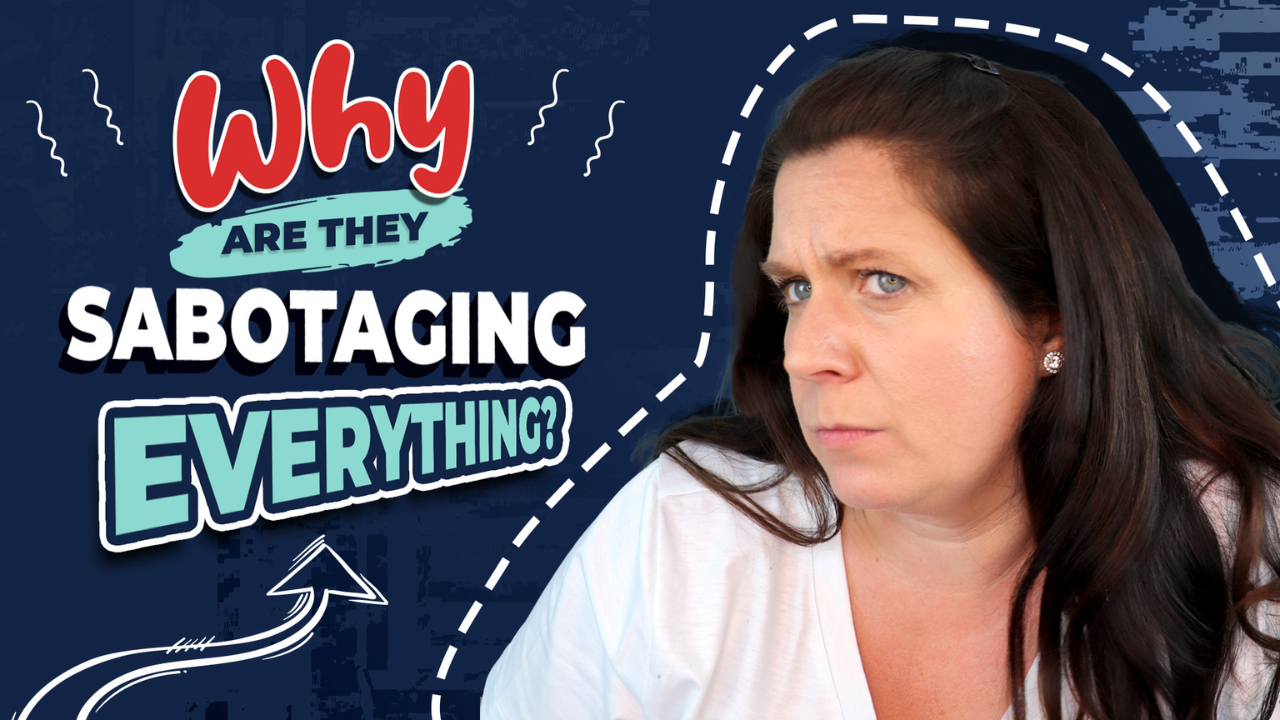"Am I Part of the Problem? 😔💔" 5 Signs You Could Be Enabling Addiction
5 Signs You Might Be Enabling Your Loved One’s Addiction
Enabling goes beyond simply paying someone’s bills or letting them stay under your roof. It’s a deeper, more complex dynamic that can keep your loved one stuck in unhealthy patterns. In this post, we’ll walk through five major signs that you might be enabling someone struggling with addiction. Think about each sign as you read—does it resonate with your experience?
If you're here, you're likely concerned that you might be enabling someone you care about.
So, let’s explore the five signs that you might be enabling:
1. Shielding Them from Natural Consequences
If your loved one isn’t facing the natural outcomes of their actions, they might not see a reason to change. Natural consequences happen when someone’s actions lead to logical results, like missing work and getting fired. On the other hand, punishment is something you impose in response to bad behavior. By stepping in and fixing their problems, they might feel like every...
Is Someone Else Sabotaging Your Efforts To Help Your Addicted Loved One?
Everyone involved needs to be aligned to influence someone to get recovery. But what do you do when they just won't come into alignment with you, and it feels like family and friends are sabotaging your loved one's recovery?
You're trying to help your addicted loved one recover, but family and friends keep sabotaging your efforts. As a result, everything you do is just a waste of time. It's maddening enough that you're dealing with an addicted person who's not being rational, causing trouble, and making your life difficult. But on top of that, you've got other people either not coming on board or making it worse.
#1. The classic enabler
The first common way you're likely to be experiencing this is if there is another person in the family. Maybe it's your mother-in-law, father-in-law, or spouse. Still, this other person in the family refuses to see the problem, or perhaps they know the problem but refuse to understand the seriousness of the situation.
I'm calling this category the...
5 Ways You Could Be Enabling Someone Else's Addiction!
You've probably heard of the three C's if you have a loved one struggling with addiction and are involved in family recovery. The three C's come from Al-Anon.
The three C's are:
You didn't CAUSE it.
You can't CONTROL it.
You can't CURE it.
To make it clear, you didn't cause the addiction. You can't control the addiction. You can't cure the addiction.
I want to add a fourth C, saying that you can CONTRIBUTE to the problem.
You might be contributing to your loved one's addiction in five ways.
I want you to understand that I'm not telling you that the addiction is your fault. The five behaviors that I'm about to explain trigger addiction.
It's easy for us to think about and see how addiction is the puppet master controlling all of our loved one's behaviors. I know you are behaving this way and doing these things because the addiction triggers you to react this way. However, like with an addiction, it is your responsibility to improve.
Sometimes we fail to see that addiction is not on...
When A Family Member Refuses To Acknowledge The Addiction
 When you have a loved one with addiction, the pain, suffering, and loneliness are sometimes overwhelming. Do you know what makes these feelings worse? Having someone else in the family in complete denial over the loved one's addiction.
When you have a loved one with addiction, the pain, suffering, and loneliness are sometimes overwhelming. Do you know what makes these feelings worse? Having someone else in the family in complete denial over the loved one's addiction.
It's particularly frustrating when you can see the problem but someone else is
sabotaging you behind the scenes.
We see this play out so often in our office. The person in denial is either a parent, grandparent and occasionally a sibling. This creates a big problem because you have
one person who doesn't want to believe that the person has an addiction. It can interfere with the whole process of getting the addicted person to recovery.
This happens in almost every case. I get it, it's uncomfortable to absorb this information and to sit with it. It's much like a grieving process.
The denial is a self-protective mechanism of some sort. Denial is always protecting you from something that you're not ready to see.
What does it look like when there's den...
How To Be Kind To Someone With An Addiction Without Enabling
 Where is the line between helping, supporting, enabling, and having empathy for someone struggling with an addiction? We're going to shed a little light on this for you so you can figure out what's helping and what's enabling.
Where is the line between helping, supporting, enabling, and having empathy for someone struggling with an addiction? We're going to shed a little light on this for you so you can figure out what's helping and what's enabling.
I'm going to give you five reasons why being kind to someone, showing empathy, and even giving positive reinforcement can them figure out that they have an addiction problem way faster than when you try to do it more directly.
We get so frustrated and impatient dealing with someone who has an addiction because it's so clearly right there and it's just mind-blowing because the person with the addiction, can't see it. The more you push and try to get them to see the issue faster, the longer it takes them to get out of denial. When you come at someone directly like that, they immediately put their walls up and they get defensive. They'll no longer hear, listen, or even consider what you're saying. It's almost like a reflex even if they don't mean to they're going...



